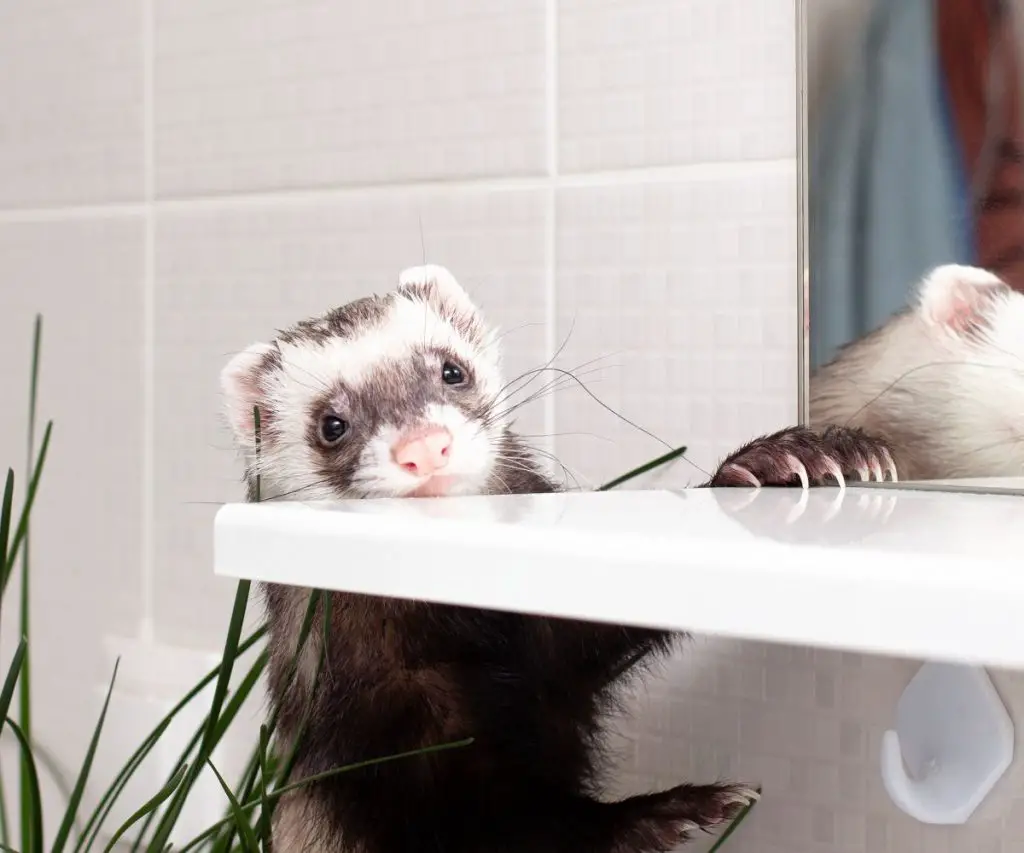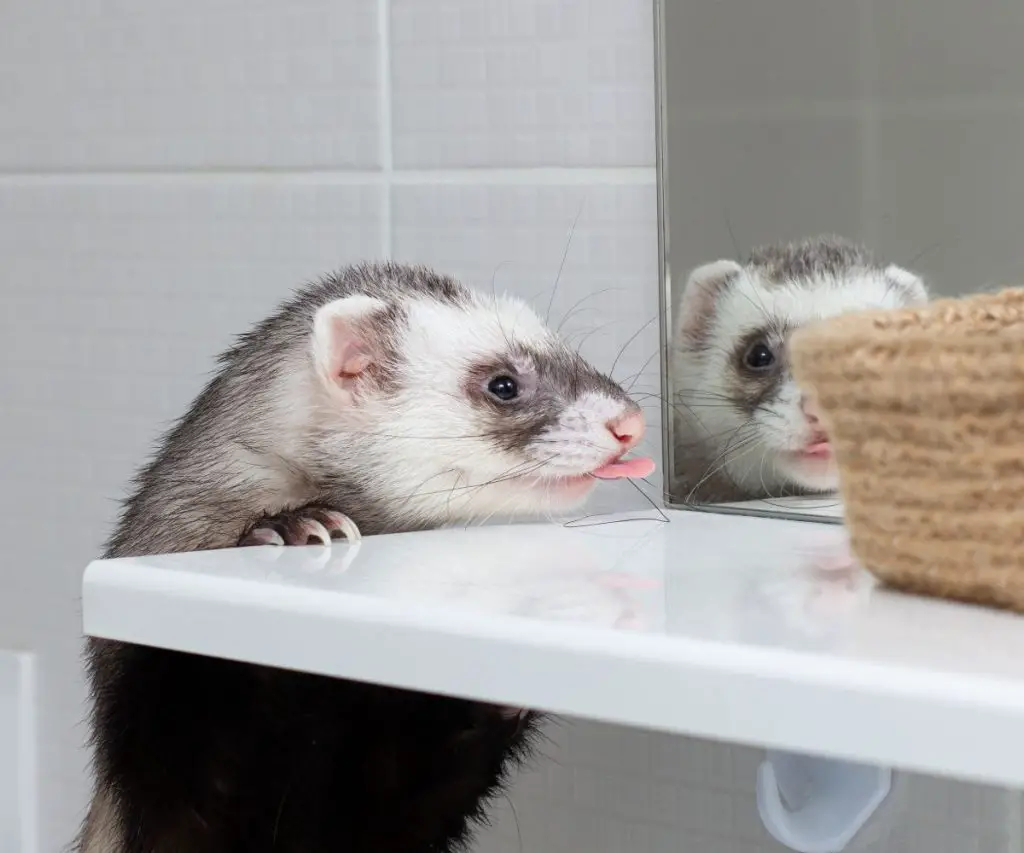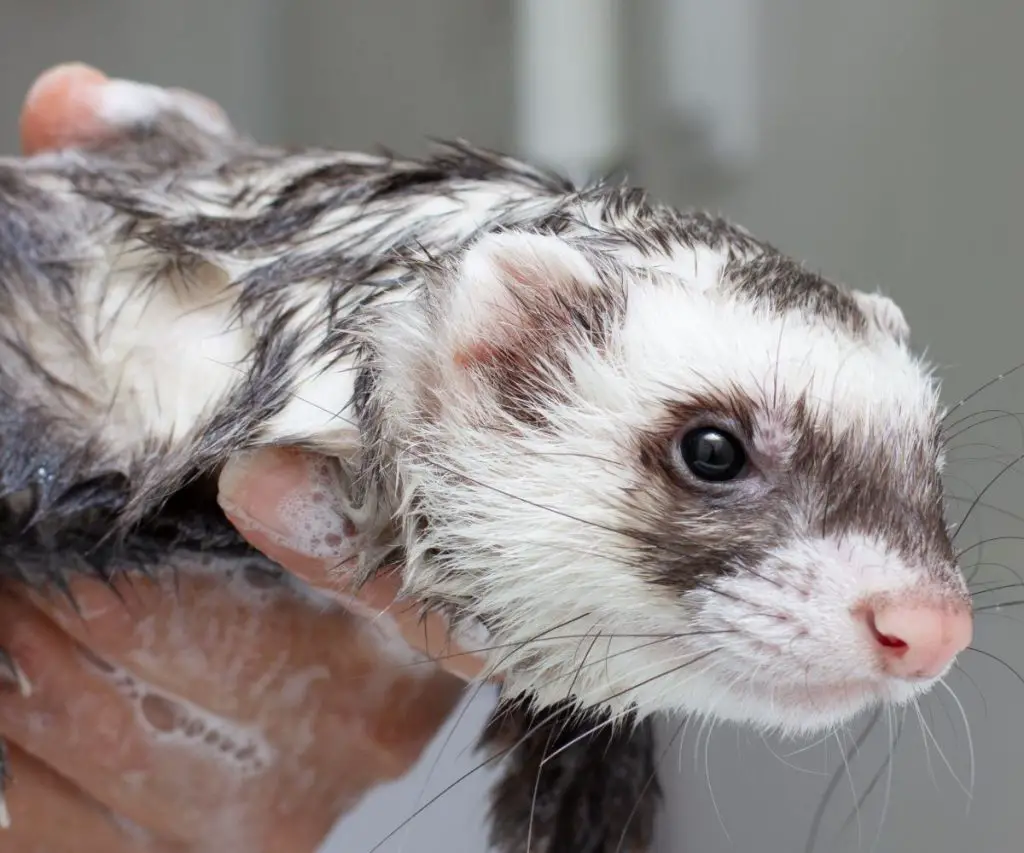Ferrets are the third most popular pet in the country, right behind dogs and cats, and it’s easy to see why. They’re adorable, independent, playful, and social. While ferrets are usually easy to care for, you’ll need to consider a variety of factors before adopting one, including whether or not they’re allowed under the terms of your lease.
Do apartments allow ferrets? Here’s a closer look at what you and your furry friend need to know.
Do Apartments Allow Ferrets?
The answer varies depending on the apartment, so you’ll need to ask the landlord or leasing agent. Generally, places that allow dogs and cats will also allow ferrets. If the apartment prohibits pets, you’ll want to ask about ferrets specifically, as sometimes a “no pets” clause only applies to dogs and cats.

Is an Apartment a Good Place for a Ferret?
Apartments are often an excellent place to keep ferrets. While you’ll keep them in a cage when you’re away, when you’re at home, you’ll want to let your ferret out, and even a small apartment typically provides enough space for them to run and explore.
Plus, apartments provide a secure environment. They typically only have one entrance, so the ferret has fewer opportunities to escape.
Also, ferrets are lightweight. When running and jumping around an apartment, it’s unlikely your ferret will make enough noise to disturb your downstairs neighbor.
While ferrets are social creatures, they’re also comfortable spending time alone. If you need to leave them on their own for around eight hours while you go to work, they should be fine. However, they also need to exercise, so you’ll want to let them run around your apartment (while supervised) for at least two or three hours a day.

Do I Need to Keep My Ferret in a Cage?
Yes. Your ferret should only run around your apartment when you’re at home to supervise. Otherwise, you’ll want to keep your ferret in a cage.
You’ll want a cage with wire walls and floors instead of glass. While the size varies based on the ferret’s size, it should have enough room for three distinct areas:
- A sleeping area
- An eating area
- A litter box
Place the litter box in a corner as far away as possible from the eating and sleeping areas. Alternatively, you can use pee pads for ferrets.

Why Do Apartments Not Allow Ferrets?
Apartments can disallow ferrets, or pets in general, for many reasons.
Smells
Ferrets can emit strong smells. They have scent glands similar to skunks, only with a far less intense aroma. It’s not uncommon for owners to have their pet ferret’s scent glands removed, which could potentially be a condition set as part of the lease.
Even without scent glands, ferrets emit a musky odor. It’s rarely overwhelming, even in a small apartment, as long as you keep the animal’s cage clean.
Also, you can bathe ferrets with baby shampoo. Alternatively, you can use a special ferret shampoo. This will reduce the odor and further increase the hygiene of your ferrets.

Concern with Damage
Another potential issue many landlords have with ferrets involves issues related to cleanliness.
Sometimes, landlords have the idea that ferrets are destructive. They’ll chew on walls and go to the bathroom on the floor.
Truthfully, ferrets are clean animals. They’ll spend lots of time grooming themselves, and they can be trained to use a litterbox. Most ferret owners will provide two litter boxes, one in the cage and another elsewhere in the home.
Many ferret owners also use a collar with a bell for ferrets to always know where they are. So any possible misstep can be avoided.
It’s unfortunate when ferrets are banned due to incorrect beliefs about their behavior, but it happens occasionally.
Does a Ferret Count as a Pet in an Apartment?
Sometimes. Many apartments will prohibit animals over a certain size, such as dogs that weigh more than 15 pounds. The reasoning behind these bans is that larger animals are destructive and make noise.
Ask your landlord or leasing office for more information on what pets are allowed. It’s not uncommon for a place to ban animals that roam around the apartment freely but allow smaller creatures that spend the majority of their day in a cage, such as reptiles, birds, and ferrets.
How Do I Keep a Ferret Safe in an Apartment?
The most important safety tip is to never let your ferret run around unsupervised in your apartment. Only let them out of your cage when you’re home. Also, watch them carefully (usually, this isn’t difficult, as they’ll likely enjoy spending time near you).
Also, you’ll want to ferret-proof your apartment. Remove any reclining furniture, as ferrets love to climb inside, where they wind up accidentally crushed. Close even small gaps throughout your apartment, as ferrets can fit through tiny spaces with ease.
Finally, you’ll want to secure all poisons and toxic chemicals. Ferrets are curious creatures. Ensure all potential hazards are inaccessible (and, remember, ferrets can usually open the under-sink cabinets).
Are Ferrets Allowed in Apartments? Summary:
Do apartments allow ferrets? It depends.
Apartments have different policies regarding ferrets, so check with the landlord before signing a lease. Ask about ferrets specifically because some places that don’t allow dogs or cats do allow smaller creatures such as ferrets.
If your apartment allows ferrets, you’re in luck, because even a tiny studio apartment provides plenty of space for a ferret to frolic.

